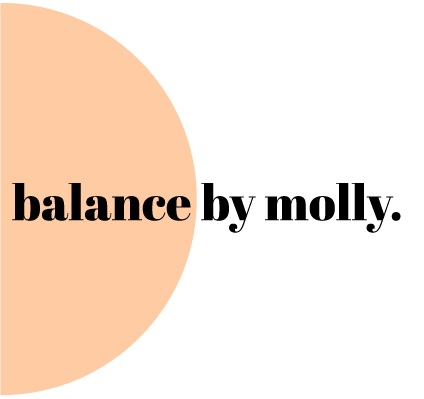Do you work for yourself? Want to develop a better routine for work? As an entrepreneur, mastering your time for efficiency and productivity can be simple, but it is important to discover what works best for you!
Before I started my own nutrition practice I worked in corporate America as a banker in technology finance. I used to have weeks where I felt like no matter how many items I checked off of my to-do list, they would keep piling up and the list would get longer and longer. Some mornings I would come into work and stare at my to-do list not even knowing where to start, thus triggering bouts of high stress and anxiety. Anyone feel me on this? Simply put, I wasn’t managing my time well.
Fast forward to quitting my banking job and setting out on my own. One of the unexpected hurdles that came up during the first few months of working for myself was, how the heck do I manage my time? I had a million things I wanted to do. Client scheduling, sessions and follow ups. Marketing on social media, newsletters and blogs. Partnerships and community events. Corporate wellness, office hours and nutrition talks. The list goes on and on.
It took a lot of time to figure out my new routine, when to schedule clients, how to schedule clients, and even things like when my brain was most focused and efficient and also my sleep schedule. Now that I don’t work a 9 to 5 I am able to maximize hours for when my brain turns on (late afternoon and evenings) versus when to focus on more menial tasks that don’t require a lot of brain power (mornings).
I have put together my 3 tips for managing your schedule as an entrepreneur like a pro. These have worked tremendously for me and I highly recommend trying one or all three to see how it works for you!
ESTABLISH A MORNING ROUTINE
As an ENFJ I need structure and as “the most introverted of extroverts” I also need quiet time. I understand that what might work as my routine can be very different for others, but what is important is establishing your own in the morning. Setting a routine in the A.M. is so important for how we spend the rest of our day. As an entrepreneur, it is likely that you will have many opportunities thrown in your direction at once, so having a daily routine can help to ground you and give you some much needed time for yourself.
I am a late riser. My internal alarm clock is set to 8am. My boyfriend is usually up in the morning and on his way to work by then. Most days I don’t leap out of bed right away. I take some time to stretch my body laying down or I do a quick 1-2 minutes of Dr. Andrew Weil’s breathing exercise which helps to center me before starting my day.
My first stop in the morning is the kitchen. I heat up water on the stove to pour into a big 16 oz. glass with a giant squeeze of lemon. Warm lemon water is my “coffee” and gives me energy, cleanses and alkalizes my system and gets me ready for the day. I then sit on my couch and enjoy this warm cup of goodness while I check my calendar to prep for the day and time-block for the next day (see below). I then answer any urgent emails and leave the rest for later.
Back in the kitchen I am making a smoothie for breakfast. This work for me as it is such an easy way to get a dose of vegetables, protein and healthy fats in the morning. I take this smoothie to my desk in my home office and dive into my emails first thing. Clearing out what I can in the morning helps me feel like I can concentrate on other tasks for the rest of the day.
The last part of my morning routine is getting exercise. I usually take a 10am yoga class a couple blocks away from my house. On days that I am taking clients at MNT Studio I will take an afternoon class there. Exercise is such an important part of my routine and if not yoga or pilates I am walking around San Francisco for at least 20-30 minutes a day.
TIME-BLOCKING
To be honest, I don’t know how I would function without time-blocking. Never heard of it? No problem, let me break it down for you. A big part of creating a daily routine is to block time for certain tasks. If you are like me, and struggle to stick to a routine and find your mind wandering from one idea to another then time blocking will help balance your time. Sometimes I even schedule a time for when I just let my mind wander! I put this down on my calendar as “do not work.” But I have to admit that structure doesn’t always rule my day, so being flexible is important as well.
Here is how it works:
Time blocking is the act of scheduling sessions of work and different tasks on a calendar. By deliberately assigning work time on your calendar, you automatically acknowledge the immutable resource of time. Here is an article I love on time blocking from Fast Company.
Some people schedule every planned task throughout the day and completely fill their calendar. Others, like me, allow for flexibility if other things pop up. Flexibility and buffered time are part of my planning process as is the time to do the planning itself. I also find a huge benefit in time blocking tasks that require more brain power for later in the day when my brain is more turned on. This is also why I take my clients in the afternoon and early evenings.
I do not time block every day. When I find it most useful is on days when I don’t have clients and I am left to my own devices. Here is a sample of my Friday that helped me stay focus towards the end of the week so I can relax and take my mind off of work for the weekend.
Also, a final note on time blocking if you plan to try it out. I would recommend figuring out a way to become productive with your work before you start time blocking your work. In order to do it well, you need to work first on time management, and honestly what I find works best with time management is cutting yourself some slack. Know how to adjust and buffer throughout the day. Don’t schedule to many tasks. Stick to 2-3 important ones. Practice acknowledging interruptions from the self and the world and have a sense of what exceptions work and don’t work for you.
SETTING BOUNDARIES
Deciding to limit how much I work has been key for keeping my sanity. When I first launched my business, I didn’t set boundaries on when I worked and what I did when. This eventually led to being frustrated when I found myself working on weekends and also guilt whenever I had any free time and I wasn’t working.
When I put limit on the hours I worked, this changed everything. Time-blocking my day helped me immensely with setting boundaries since they literally became tangible tasks on my calendar. Establishing a morning routine that didn’t involve me opening my computer or phone first thing was key as well.
Setting boundaries also includes setting a schedule for each week that works for you. As an entrepreneur, you have to make money in your business to survive and to keep on doing the work that you are passionate about. To me this meant taking clients when I could get them, any day of the week and any time. What I realized after the first couple of months was that this wasn’t efficient for all the other work that goes into running a business and didn’t help me maximize my time. After trial and error, I settled on taking clients only three days a week in certain time blocks and used the other two days of the week for marketing, writing, meetings or to relax over a long weekend.
As a nutritionist and wellness coach who also wants my clients to be successful, I allow for unlimited emails in my programs. In the beginning, I would reply to emails as they came through, even if I was out to dinner or after 11pm. Setting boundaries like responding within 24 hours to all emails allowed me to be more present in my life.
Take the time to play around with what works for you with setting boundaries, setting a schedule and setting up a routine. Make time to be present in your life and find balance for getting work done and spending time with yourself and those that you love. After all, if you have also left the corporate world to become an entrepreneur, isn’t that what it is all about?


